|
When it comes to travel, inspect simply means to look at how things went on your last trip. Make note of the things that worked well, as well as things that could be improved. Adapt means to adjust or improve things that could have been done better, so that future trips run more efficiently and smoothly. This is another reason why we say: 'Travel is an Art!' It's the art of planning, packing and traveling efficiently.
Even with all our travel experience, we are constantly trying to improve what we do and how we travel on each trip. There are always little things we find that can be adjusted to help our travels run even more smoothly.
When you return home from a trip, you will no doubt have made some observations on things that went well, and things that didn't. They may be little insignificant things, or they could be larger more important things. Either way, if they are something within your control, you should consider how to improve them for future trips.
Some things may seem like they are out of your control. Perhaps you had a canceled train or an unexpected transportation strike. You may be thinking there was nothing you could have done, and these are just things you must deal with. That may be the case, but in many situations, there may have been things you could have done ahead of time to avoid these situations. Let's take a closer look. Many countries and cities publish planned strike dates. If you had some some research before you departed, you may have found published strike dates and could have arranged an alternative form of transportation. In the case of a canceled train, you may have been able to plan alternatives routes allowing you to arrive at your destination only slightly later. Know the timetables ahead of time and research alternatives. On one of our trips, we took a sleeper train from Glasgow to London. We could have arrived back in London on the same day we were flying back to the States and hoped that everything went to schedule. To be safe, we decided to take the sleeper train a day earlier to remove any chance of missing our flight should the train be delayed. By arriving a day early, if the train was delayed, at worst we would arrive in London later in the evening and it would not impact our flight the next day. At best, we would have a full day in London. When you plan your trip, look for alternatives to adverse situations that may arrive. Have a plan to work around any unexpected situations that may arise.
This example gives shows a scenario on how to inspect what happened on a trip, then adapt changes in the future, helping you plan better and save time. Let's say you plan to travel by train from Florence to Pisa for the day. The trip takes around an hour, so it's great for a daytrip. Arrive at Pisa the morning, you plan to visit the Piazza del Miracoli and the Tower, cathedral and baptistry. You then want to have a nice lunch with a view of the Piazza before heading back to Florence.
As you arrive at the train station, you find that your train has just departed. Now, you have to hang out at the station for an hour or more before the next train. Now you ‘Inspect’ to identify the problem and take an action item to ‘Adapt’ a new process to fix the problem. To avoid wasting time waiting on a train, you could research the return schedules ahead of time, so you know exactly when to arrive at the station. Make note of the return trains from Pisa back to Florence for several hours, bother before and after the time you think you may want to return. By doing this, you will avoid wasting time waiting on a train when you could have enjoyed another glass of wine at lunch or even departed early to spend more time back in Florence.
This may seem simple and it is, but it’s little things like this that help you become a ‘Smart Traveler’ and make the most of your valuable travel time.
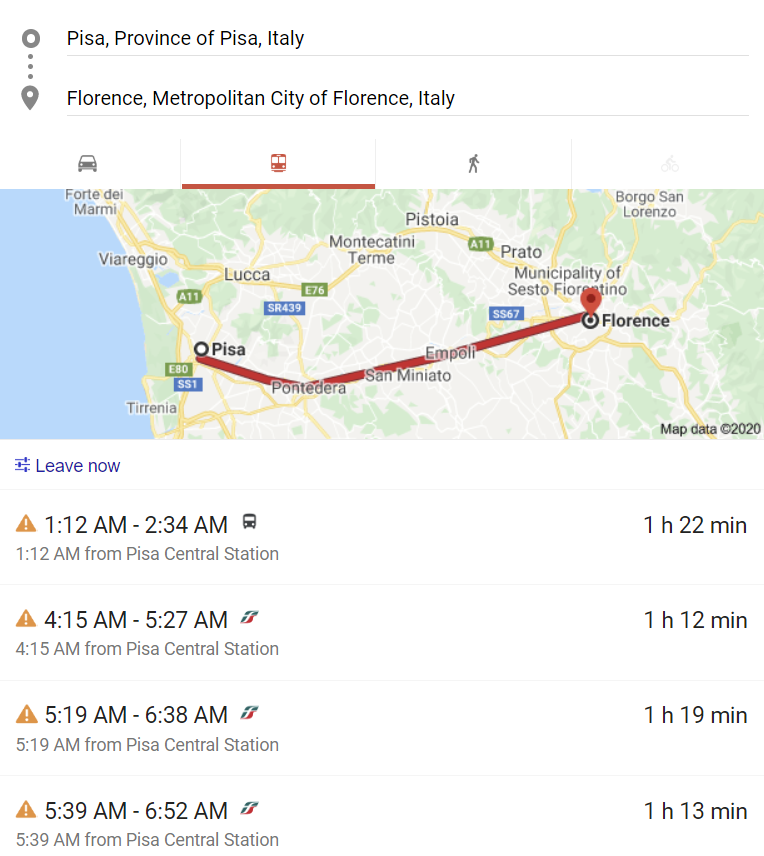
You will find that there are several minor things you may be able to improve. These are not things that disrupted your trip, but things you can adjust to make your travel easier and more efficient, especially when Traveling Light.
Perhaps you carried an extra sweatshirt around with you the entire time and never wore it. On a future trip, you may want to consider 'not' bringing it with you. Maybe you brought extra pants or shirts that you never wore, so consider eliminating some of them on future trips.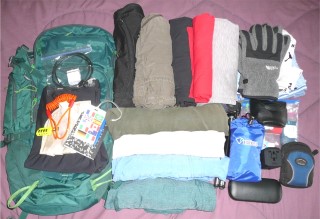
You may have found some subtle adjustments that gave you more room in your pack and prevented your cloths from wrinkling as much as they typically would. This may involve rolling your clothes instead of folding them. It may be that packing the bottom of your pack with rolled up clothes placed vertically rather than horizontally gave you a little more room.
Some say not to plan and pack for every situation you may encounter, and we agree. If you plan on snorkeling in the South of France, why bring and carry around your personal dive mask and snorkel for two weeks when you will only be using it for a day or two? It would be far easier to rent one there. Of course, there are always exceptions. We always pack thin lightweight rain gear consisting of a jacket and pants. This is backpacking shell-type gear that's extremely lightweight and compressible, taking up little space in our pack. We may never use it, but I think we have at least once on every trip. If it's not raining, it can also be worn as an extra layer if needed. Another example are the small travel umbrellas. You may want to leave it at home as you can always pick one up just about anywhere, sometimes for as little as a Euro. However, we always bring ours with us as it takes up little room and if needed, we don't have to hunt around trying to find one to buy. On a trip to Paris, we had just arrived and were about to exist the train station where it was pouring rain. We slipped on our rain gear over our cloths and used the umbrella we had brought with us.
Speaking of rain, years ago on one of our first ever trips, we got caught in a rainstorm in Fussen Germany while visiting the Neuschwanstein and Hohenschwangau Castles. We were wearing typical running shoes and they got completely soaked. The shoes took days to dry out and it was no fun slipping our feet into cold damp shoes every morning. We learned our lesson, and from that trip on, we always wear waterproof/breathable shoes. We typically wear North Face Hedgehog shoes as they are very comfortable and great for walking. Now we never worry about wet shoes.
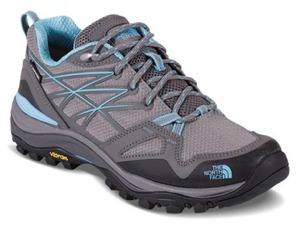
Perhaps you have an older backpack that is slightly heavier, or you would like to have more external compartments and straps for securing your jacket to the exterior. It can take time to find the pack that works for you, but it can be fun shopping around for that perfect pack.
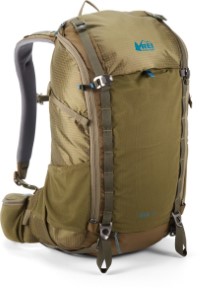 Were you constantly purchasing plastic water bottles during your trip, when you could have been reusing a single bottle the entire time? Although you can purchase a single plastic bottle after you pass through airport security and then continually refill it during your trip, you may want to consider a nice aluminum bottle that you will reuse on several trips. Not only will you end up saving money, but by refilling the same bottle on multiple trips, you will be helping the environment.

Look for ways to further reduce the size and weight of items you bring with you. Little changes can add up, reducing weight and saving space. You could purchase a pair of smaller style reading glasses having a smaller case, rather than bringing the larger ones you may wear at home.
In our age of technology, it's still always a good idea to carry an ink pen with you. You will more than likely have to complete an immigration card when traveling to a different country from the US. Traveling with a full-size pen is absolutely fine, but we like traveling with a compact Fisher Bullet Space Pen. The pen fits nicely in your travel journal or pocket and you never have to worry about being impaling by it as it's short with rounded tips.
Using the Mobile Trip Profile, you may have found that you should have added additional photos of your hotel of special attractions maps. You may also want to include international phone numbers for the properties where you will be staying. Just as important, know how to dial an international number from your phone. It will be extremely frustrating and time consuming if you need to dial an international number and cannot figure out how to do it.
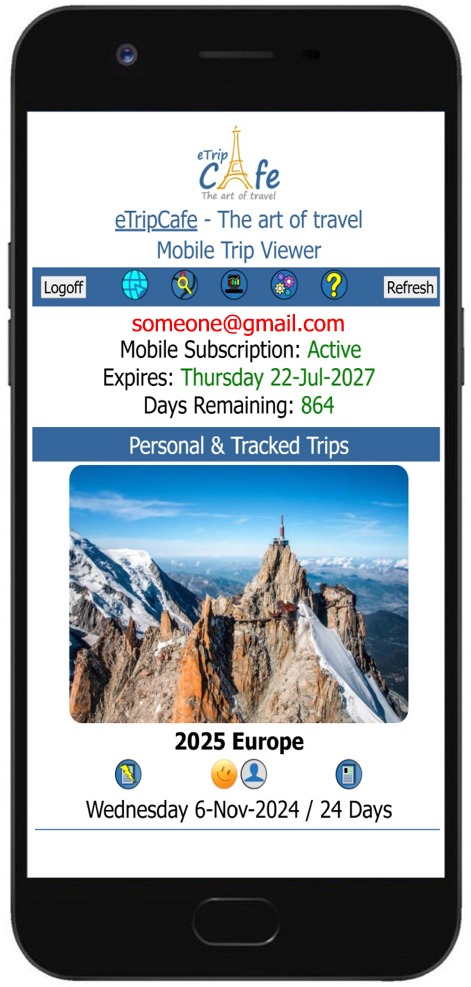
 So you don't lose track of the things you have learned and want to adjust for future trips, keep track of everything by creating notes on the Travel Notes page of your account. So you don't lose track of the things you have learned and want to adjust for future trips, keep track of everything by creating notes on the Travel Notes page of your account. |